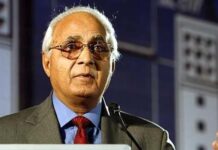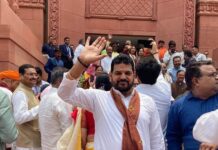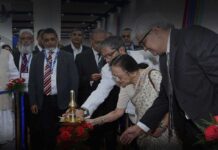- Political parties reached Supreme Court twice in Karnataka, once Janata Party and second time Congress proved majority
- In 1998, Jagadambika Pal of Congress was appointed as CM by the Governor, but he could not prove majority.
The Supreme Court ordered a floor test for the formation of government in Maharashtra. A few hours later, Chief Minister Devendra Fadnavis and Deputy Chief Minister Ajit Pawar, who took oath 4 days ago, resigned from the post. Opposition parties Shiv Sena, Congress and NCP went to the Supreme Court regarding the floor test. This is not the first case when political parties have moved the Supreme Court to form government in the states. Earlier, 4 such cases have been reported.
First case: Karnataka (1989)
SR Bommai vs Government of India
Sr Bommai was the Chief Minister of Karnataka, but on the basis of lack of majority, the Governor sacked his government and imposed President’s rule. Bommai challenged it first in the High Court and then in the Supreme Court. On 11 March 1994, a 9-judge bench of the Supreme Court, in its decision, asked SR Bommai to form the government again.
Second case: Uttar Pradesh (1998)
Jagdambika Pal vs Union of India
A similar situation was created in Uttar Pradesh in 1998 and the Supreme Court ordered a majority test. At that time, Governor Romesh Bhandari sacked Kalyan Singh from the post of Chief Minister and appointed Jagadambika Pal of the Congress as the Chief Minister. The Supreme Court had ordered a majority trial in 48 hours. Kalyan Singh got 225 votes and Jagdambika Pal got 196 votes. Pal could not prove a majority.
Third case: Uttarakhand (2016)
Harish Rawat Sarkar
After the political crisis in 2016, President’s rule was imposed here. After this the case reached the Supreme Court. The court gave the government of Harish Rawat of Congress a chance to prove majority in the assembly. When the floor test took place, 33 of 61 MLAs came in favor of Harish Rawat and he became the CM.
Fourth case: Karnataka (2018)
BS Yeddyurappa’s case
Similar political equations were created in Karnataka last year as well. The Congress had complained of horse-trading and the matter reached the Supreme Court. On 17 May 2018, BJP’s BS Yeddyurappa was sworn in as Chief Minister and the Supreme Court asked him to prove his majority in the Assembly within 48 hours. Yeddyurappa succeeded in this and became the Chief Minister.
















































